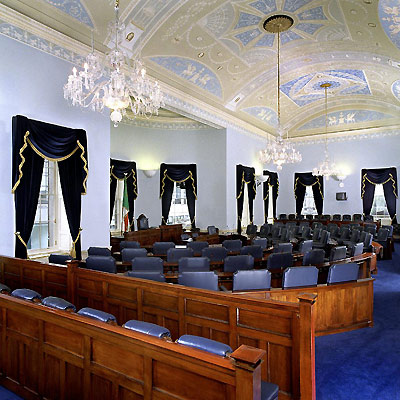This week the Seanad will debate a motion in private members tim e proposed by members of the nominated senators group – the so called Endapendents. Given the reduction in the numbers of committees announced by the government last week the opportunities for experts, organisations and communities to present issues to parliamentarians will be noticeably less.
e proposed by members of the nominated senators group – the so called Endapendents. Given the reduction in the numbers of committees announced by the government last week the opportunities for experts, organisations and communities to present issues to parliamentarians will be noticeably less.
The nominated senators have formed a technical group and they are proposing a positive use of Seanad time which does more than talking about reform and concentrates on the issues and concerns of people.
In light of the commitment in the Programme for Government to overhaul the way politics and government works, Seanad Éireann recognises the need for change in how it conducts its business and agrees to:
– put in place arrangements so that this House can engage directly with well informed citizens and residents from all walks of life whose experience and expertise can contribute to debates on issues of public importance thereby adding considerable value to our work as legislators;
– invite to the floor of Seanad Éireann, on a case by case and ongoing basis, appropriate leaders and representatives of civic life who have a significant contribution to make to the deliberations of this House; and
– include in these arrangements the hosting of respectful North/South dialogue that consolidates the peace process in Northern Ireland, develops a peace dividend for all communities affected by the conflict, deepens cross-border relationships and promotes a shared approach to the significant centenaries that will arise in the next decade.
Jillian Van Turnhout, Eamonn Coghlan, Fiach MacConghail, Martin McAleese, Mary-Ann O’Brien, Marie-Louise O’Donnell, Katherine Zappone
As someone who wishes to see the Seanad reformed rather than scrapped it’s a very interesting idea and one way of making sure that the Oireachtas reaches out and that people take notice of the Seanad despite Enda’s and Eamon’s intentions.
The huge majority held by the Government and introverted move to remove and compact the Oireachtas committees means that parliamentarians may become isolated and uninformed. (I’m being generous here!) Also another concern is that the lobbying of parliamentarians will completely go behind closed doors if there are limited or no avenues within parliament for investigations and hearings on issues to take place.
On the matter of lobbying I wonder if we could get all TD’s and Senators to publish the visitors records for groups, delegations and meetings that they receive in Leinster House and their constituency? Yes I know that pig is out there flying by my window again but maybe we could see some action on that as well as the reform of the Freedom of Information legislation. Chop to it!


